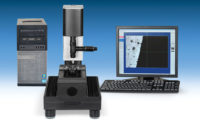SANTA MONICA, CA - Saturday marked the one-year anniversary of General Motors' emergence from bankruptcy. The company has come a long way, and is moving quickly down the road to create an initial public offering (IPO) for its new stock. Edmunds.com, an online resource for automotive information, recognizes the progress that has been made but questions the rush to have an IPO.
"This is certainly not the economic climate in which I'd want to have an IPO since it is likely to reduce the initial valuation of the stock. Negativity about the economy continues to swirl about and the psychological effect is putting a damper on all things it touches; what may be the most significant IPO in history will not be immune," says Edmunds.com CEO Jeremy Anwyl. "One can't help but wonder: what is the rush?"
In a report on AutoObserver.com, Senior Editor Bill Visnic and Edmunds.com analysts explore the following possibilities:
1. Is there pressure from current shareholders like the government and the UAW VEBA trust who are anxious to liquidate their shares?
2. Is GM trying to go public while the company has a fair amount of positive momentum in anticipation that the future may not be quite as positive?
3. Is the timing political, targeted to happen before the next election so that the current administration can take credit for seeing the process from start to finish?
"Regardless of whether any of these possibilities hold any weight, GM executives must have reasons for expediting the IPO," says Anwyl. "The company would benefit from clarifying its reasoning publicly and openly in order to build trust and credibility and to resolve public curiosity."
"When GM stock is offered, the U.S. government can sell all or a portion of its 60.8% stake in the 'new' GM. This would free up TARP funds that could be applied to something else, like unemployment benefits which may provide a measurable boost to the economy," Edmunds.com Senior Economist Rebecca Braeu told AutoObserver.com. "The big question is whether the government will receive payback of its $49.5 billion investment in GM."
Get our new eMagazine delivered to your inbox every month.
Stay in the know with Quality’s comprehensive coverage of the manufacturing and metrology industries.
SIGN UP TODAY!Copyright ©2024. All Rights Reserved BNP Media.
Design, CMS, Hosting & Web Development :: ePublishing


